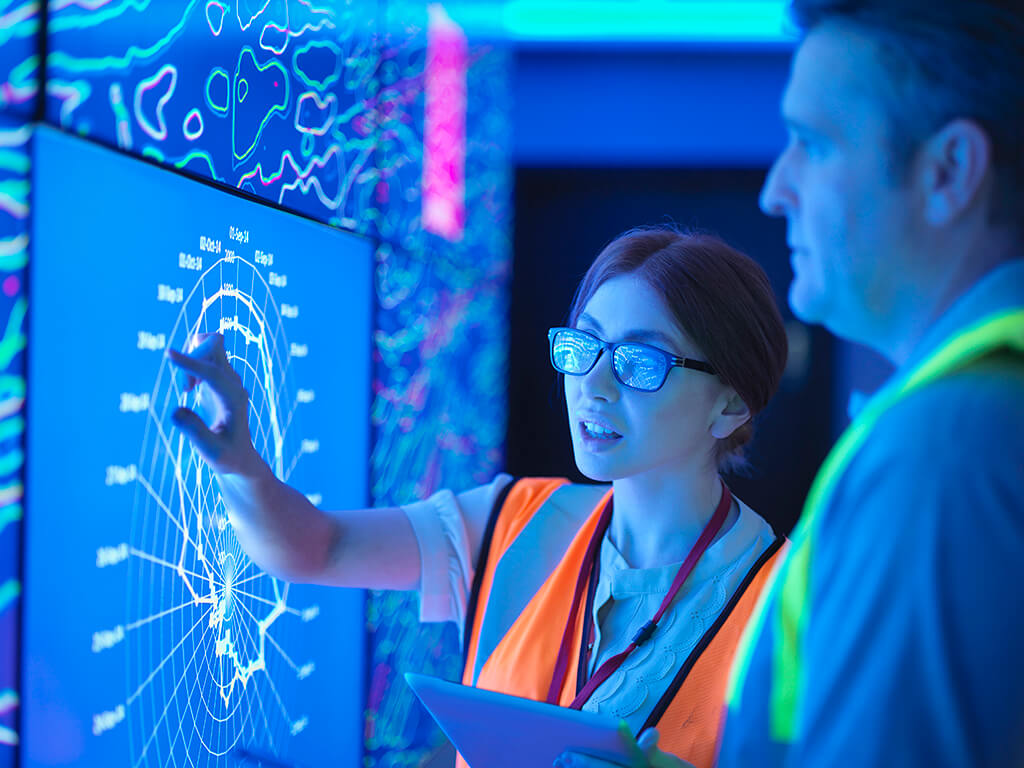A plain-speaking guide to AI and advanced analytics: A free resource to help build trust in a technology crucial for sustainability
Fujitsu / December 23, 2021
AI is moving so quickly, and there is so much noise out there – not all of it helpful, says Shan Chidambaram, Head of Data Analytics, AI, and Quantum Inspired Computing, Fujitsu America, Inc. As a result, many people feel threatened by AI – at a time in human society when we have a pressing need for the advances it can offer.
Pick your passion
It is highly likely we will need AI to help address existential needs, such as sustainable solutions to the climate emergency. But without trust in AI - and technology more generally – these solutions are likely to be delayed or even abandoned.
My Fujitsu colleagues/co-authors and I talked about this and decided the time is right for a grounded and rounded view of where AI and advanced analytics are today. One that does not talk down to the novice and does not over-promise, over-claim, or paper-over the areas where AI is currently weak. That whitepaper has just been published and is now available as a free resource. A link to the whitepaper is available at the bottom of this page.
We have aimed to cover all the essential aspects of AI, leaving you to pick your passion and drill down into the information you need. We cover the technical aspects of AI and advanced analytics, but we also put this into context in terms of how they are driving change in business and our day-to-day lives. The information will enable you to transition from novice – if that is where you are today – to enthusiast.
The paper starts with some examples of how AI has been used over the last decade. My favorite early example comes from 2011. Conservationists researching the implications of bird collisions with powerlines realized they were overwhelmed by the amount of audio data collected from power line stations, plus the associated metadata, such as times and locations. They turned to an AI specialist and were able to detect collisions automatically. Results suggested that bird deaths were actually much higher than expected. This has resulted in new, evidence-based conservation approaches.
That takes us on to a discussion of the different types of AI. The first classification is by capabilities. These are task-based narrow-AI, self-learning general-AI, and super-intelligence – the so-called “singularity” - that would be the most capable form of intelligence on Earth.
The second classification is by functionalities. There are multiple types of AI systems:
- Reactive Machines are the oldest and most limited forms of AI systems. These emulate the human mind’s ability to respond to different kinds of stimuli.
- Limited memory machines. Nearly all existing applications, including deep learning – come under this category, and learn from historical data to make decisions and predictions.
- Theory of mind AI. Today, these systems are, at best, works in progress. Eventually they will be able to discern the needs, emotions, beliefs and thought processes of people and other AI entities they engage with.
- Self-aware AI – the final stage of AI development. Today, this exists only hypothetically – and is expected to occur when AI has evolved to have what philosophers call “the hard problem” of attaining consciousness.

No data science without data engineering
The foundation of AI is data science, and we explore the interrelationships and differences between them. We dive down into the nuances of Machine Learning and the various flavors of ML. We also look at the underlying technologies – this is a core area of strength for Fujitsu – driving it at the current time, plus directions for the future. As a practical example of these technologies in use, we explore what is going on in the Mobility space, covering aspects such as traffic optimization and autonomous vehicles.
Autonomous driving has several challenges: engineering, regulatory, lack of industry standardized technology and tools, consumer trust, and acceptance. The biggest challenge is how to tame the enormous data volumes required for both training AI systems and for real-time decision making once these systems are deployed. We describe how Fujitsu is decreasing data volumes with video optimization, without compromising data availability or quality, and Learning algorithms to decide what information is critical or otherwise.
And, as there can be no data science without data engineering, we describe the key functionalities of data engineering, which is the foundation for a successful data-driven company.

Are you ready for AI?
OK – that’s a lot of content. So, let’s pause for breath. Suppose we extrapolate from where we are today with AI. In that case, it’s pretty clear that as text/speech translation and computer vision algorithms improve, we should expect breakthroughs in virtual assistants, autonomous vehicles, mail transportation and logistics, and battery management. We can also look forward to producing cheaper, flexible and durable materials.
Looked at like that, then this quote from Dr. Kai-Fu Lee (a VC who has worked in senior positions at Apple, SGI, Microsoft and Google) really does not seem too far-fetched. AI, he says, “is going to change the world more than anything in the history of mankind. More than electricity.”
That’s quite a thought. If you would like a clearer picture of the phenomenon that is AI, pick your particular area of AI curiosity and check out our latest whitepaper to move your understanding on to the next level.
If you’d like to get into a dialog about any aspect of AI, feel free to connect with me on LinkedIn.

Related information
Editor's Picks







